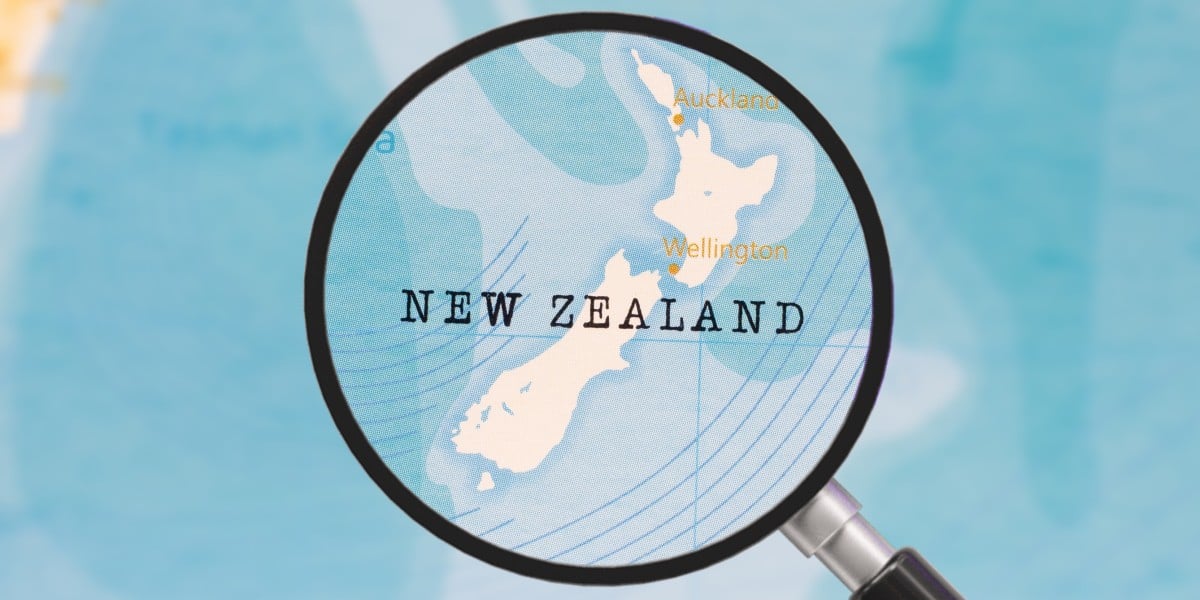Membership Of New Zealands Domain Registry Suddenly Triples, Which Isn't Entirely Welcome

Membership of InternetNZ, the administrator of New Zealand's .NZ country code top-level domain, has more than tripled in a week after the org's review of its constitution was criticized by a free speech advocacy organization.
InternetNZ started work on a new constitution in late September 2023 and in October 2024 the org published drafting guidelines that were shared with members. The guidelines and feedback on them are available here.
To understand what happened next, we need to explain an important moment in New Zealand history: The 1840 Treaty of Waitangi signed by a representative of the British Crown and more than 500 chiefs of New Zealand's indigenous Māori people. The treaty now sees New Zealand's government seek to act in partnership with Māori people. Many private organizations try to do their bit by ensuring Māori people are represented in their governance and decision-making processes.
InternetNZ's guidelines for its new constitution mentions a desire to respect the treaty, and for one of two proposed co-chair positions to always be held by a person of Māori descent. That sort of suggestion is not unusual in New Zealand.
The org also recommended reducing the number of people on its governing body from 11 to between seven and nine to make it more efficient, and for four of the members to be appointed so the org can benefit from people with specific skills. A majority of the governing body would be elected.
About a week ago, a group called Free Speech Union, which like many organizations in New Zealand also uses a name in the Māori language (in this case Kia Rangona Te Kōrero), alerted its members to InternetNZ's guidelines. The Union has previously campaigned against laws that would define hate crimes on the grounds that it's too hard to define them.
The Union has criticized InternetNZ's proposed consitution on grounds it will make the org "less democratic, more ideological, and primed for censorship." Among its criticisms is that a third of the InternetNZ board would be Māori.
InternetNZ President Stephen Judd characterized the Union's criticisms of its constitutional reform process as misguided.
- If you dip your toes into immersion cooling, watch out for dielectric liquid sharks
- Microsoft's drawback on datacenter investment may signal AI demand concerns
- Our world faces 'unprecedented' spike in electricity demand
- UK government insiders say AI datacenters may be a pricey white elephant
"Unfortunately, the proposed changes have been misrepresented by some groups including the Free Speech Union, creating confusion about the purpose of the constitutional review," he wrote. Judd says the review process was instead driven by the need to comply with local laws that govern incorporated societies, and to ensure governance of InternetNZ "reflects and serves all the communities who rely on InternetNZ's services."
The Register has asked Free Speech Union to detail how it believes censorship may result from the proposed constitutional changes, to point to sources for its other assertions, and whether it is campaigning to have kiwis sign up as members of InternetNZ. We have not received a response at the time of writing.
Whatever the motivation of InternetNZ's new members, they don't earn the right to vote until they've been on the books for three months.
"This has been the case for some years now. There are no plans to revisit this at this stage," an InternetNZ spokesperson told The Register.
We also understand there is some doubt about whether all of the new members are aware they have applied to join InternetNZ, suggesting the new sign-ups may not be sincere.
The draft constitution will be shared with members in early March. A consultation period will follow and the constitution will eventually be put to a Special General Meeting, the date of which has not been set. ®
From Chip War To Cloud War: The Next Frontier In Global Tech Competition
The global chip war, characterized by intense competition among nations and corporations for supremacy in semiconductor ... Read more
The High Stakes Of Tech Regulation: Security Risks And Market Dynamics
The influence of tech giants in the global economy continues to grow, raising crucial questions about how to balance sec... Read more
The Tyranny Of Instagram Interiors: Why It's Time To Break Free From Algorithm-Driven Aesthetics
Instagram has become a dominant force in shaping interior design trends, offering a seemingly endless stream of inspirat... Read more
The Data Crunch In AI: Strategies For Sustainability
Exploring solutions to the imminent exhaustion of internet data for AI training.As the artificial intelligence (AI) indu... Read more
Google Abandons Four-Year Effort To Remove Cookies From Chrome Browser
After four years of dedicated effort, Google has decided to abandon its plan to remove third-party cookies from its Chro... Read more
LinkedIn Embraces AI And Gamification To Drive User Engagement And Revenue
In an effort to tackle slowing revenue growth and enhance user engagement, LinkedIn is turning to artificial intelligenc... Read more

